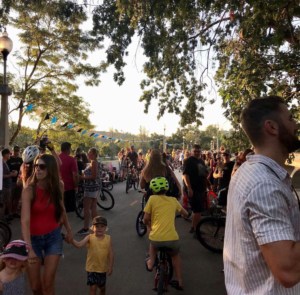The Kill Bike-Share Bill Becomes Law — But It No Longer Kills Bike-Share
Governor Gavin Newsom signed AB 371, which imposes an unprecedented insurance requirement on scooter-sharing systems, raising costs for operators and users. CalBike campaigned hard against this bill, and we’re disappointed that it passed and became law, but our diligent advocacy succeeded in reducing the potential harm from this measure.
AB 371, the Kill Bike-Share Bill, was first introduced in 2021 but stalled out in the Senate and became a two-year bill, thanks largely to strong opposition from bicycle advocates like CalBike and shared micromobility operators. The original bill imposed insurance requirements on shared bikes and scooters that were disproportionate to the harm these lightweight and low-speed vehicles can cause. It set personal injury limits higher than the insurance required of people who drive 2-ton automobiles.
Evolution from terrible to not so bad
The original impetus for the bill was pedestrians getting injured when riders park scooters carelessly, leaving them blocking the sidewalk. The hazard is particularly acute for the elderly and people with sight impairments who might not be able to avoid tripping on a scooter. Shared bikes are less prone to this issue because they’re less tippy and many of them have designated docks for parking.
The author made AB 371 into a two-year bill, so it came back in this legislative session. Many of you emailed your legislators to ask them to oppose the bill, and CalBike worked closely with the legislator and our allies to ramp up the pressure to change the bill.
In the end, we didn’t get everything we wanted, but the pressure made a difference. The final bill doesn’t require insurance for shared bikes (though it requires a study of bikes). That means California bike sharing programs, including those operated by nonprofits and transit agencies and the ones funded through state Clean Mobility Options grants, will still be able to operate. And the insurance requirement for scooters was reduced to a level that may not put scooter sharing systems out of business.
CalBike will remain vigilant about this issue, and we will oppose any efforts to require bicycle insurance on shared or private bikes. We keep up the fight with your support and help. Please consider chipping in so we can continue and expand our advocacy




